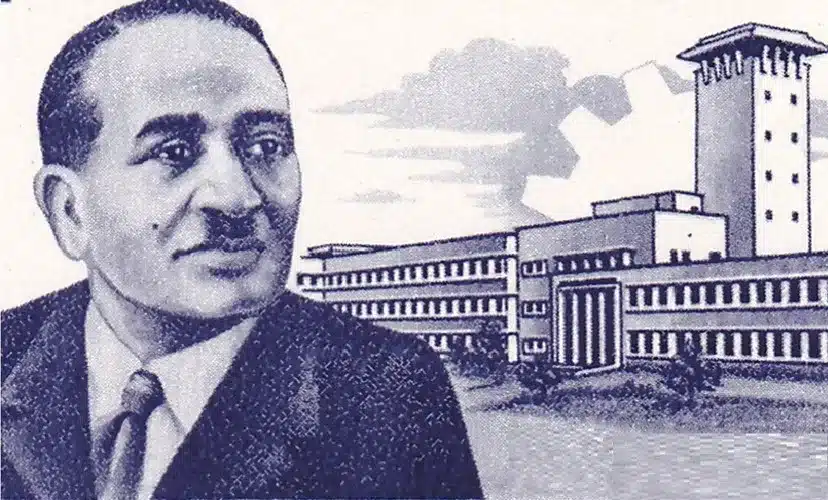Sir Shanti Swaroop Bhatnagar (21 February 1894 – 1 January 1955) was an Indian scientist, academician, and scientific administrator. Also known as the “father of research laboratories”.
In 1940, he became the first director general of CSIR (Council of Scientific and Industrial Research).
Early Life and Education
Sir Shanti Swaroop Bhatnagar was born on 21 February 1894, in Punjab, India. In 1913, he got the first division in the Intermediate Examination and joined Forman Christian College for B Sc. In 1916, after he completed his bachelor’s degree, he was hired as a Demonstrator in the Physics and Chemistry department at Forman Christian College. But, his employment didn’t stop him from pursuing higher education. After that, he joined Forman Christian College for an MSc degree in chemistry.
In 1921, he went to London University to get his DSc after completing his master’s degree. The same year, Bhatnagar went back to India and joined BHU, and later Panjab University, Lahore, in 1928.
Career
Bhatnagar was appointed director of the Board of Scientific and Industrial Research (BSIR) in 1940. In 1941, he convinced the government to create the Industrial Research Utilization Committee (IRUC) to fund more industrial research.
BSIR and IRUC are advisory bodies to the Council of Scientific and Industrial Research (CSIR) founded in 1942. In 1943, CSIR approved his proposal to set up five national laboratories.
He became the first director general of the CSIR after independence. During his tenure at the CSIR, he built many labs and mentored lots of great minds.
It was his appointment to be Secretary of Education and Educational Adviser to the government. In 1948, he played a major role in the creation and deliberation of the Scientific Manpower Committee Report.
He also played a huge role in setting up the National Research Development Corporation (NRDC) of India and launching the Industrial Research Association in the country.
Major Works
The most important thing he did was improve the way oil was drilled.
A lot of people recognized his work in magnetochemistry and the physical chemistry of emulsions. He did a lot of applied chemistry, too.
In India, he established various chemical laboratories, including the Central Food Processing Technological Institute in Mysore; the National Chemical Laboratory in Pune; the National Physical Laboratory in New Delhi; the National Metallurgical Laboratory in Jamshedpur, and the Central Fuel Institute in Dhanbad.
Awards and Legacy
In 1936, he was awarded the Order of the British Empire (OBE). In 1941, he was knighted and in 1943, he became a Fellow of the Royal Society.
In 1954, he received the Padma Vibhushan, the second-highest civilian award in India.
Since 1958 the ‘Shanti Swarup Bhatnagar Prize for Science and Technology’, named in his honor, has been given to outstanding scientists contributing to various branches of science.
Death
He died on 1 January 1955, in New Delhi, India.
Read More; 21 February in Indian and World History

